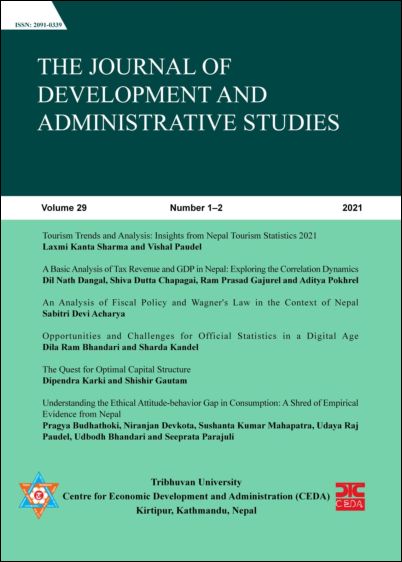Opportunities and Challenges for Official Statistics in a Digital Age
DOI:
https://doi.org/10.3126/jodas.v29i1-2.68213Keywords:
UN fundamental principles, Evidence-based policy, Big data, Administrative data, Research ethicsAbstract
Official statistics play a crucial role in informing policy decisions, monitoring societal trends, and facilitating evidence-based decision-making. In the digital age, these statistics face both opportunities and challenges that need to be addressed to ensure their continued relevance and accuracy. Governments, corporations, and the general public are expected to receive information from national systems of official statistics concerning the economic, demographic, social, and environmental situation. It has been suggested that digitizing data collection for government statistics could have a significant social impact. Government administrative data is being used more, although slowly. There is little proof, but big data access via satellites, point-of-sale systems, and social media is being investigated and tested. New requirements for official statistics as well as challenges in conventional data collecting from families and businesses are what are driving these initiatives. The final evidence basis for policies meant to enhance lives might be created by the government using new data sources effectively, and anonymized data are also being made available to other academics. The essay describes how the big data evidence-to-policy process is supposed to function in that setting and evaluates the difficulties encountered in making it function as planned using the UK, Netherlands, and UN. We come to the conclusion that technology advancements require constant attention to the promotion of official statistics and interaction with all users and potential users. The objective is to produce trusted as well as reliable statistics.
Downloads
Downloads
Published
How to Cite
Issue
Section
License
The copyright of the accepted articles is reserved by the Centre for Economic Development and Administration (CEDA), Tribhuvan University (TU). No part of the article published in this journal should be reproduced except provided by the law currently in force without the written consent of the centre.




